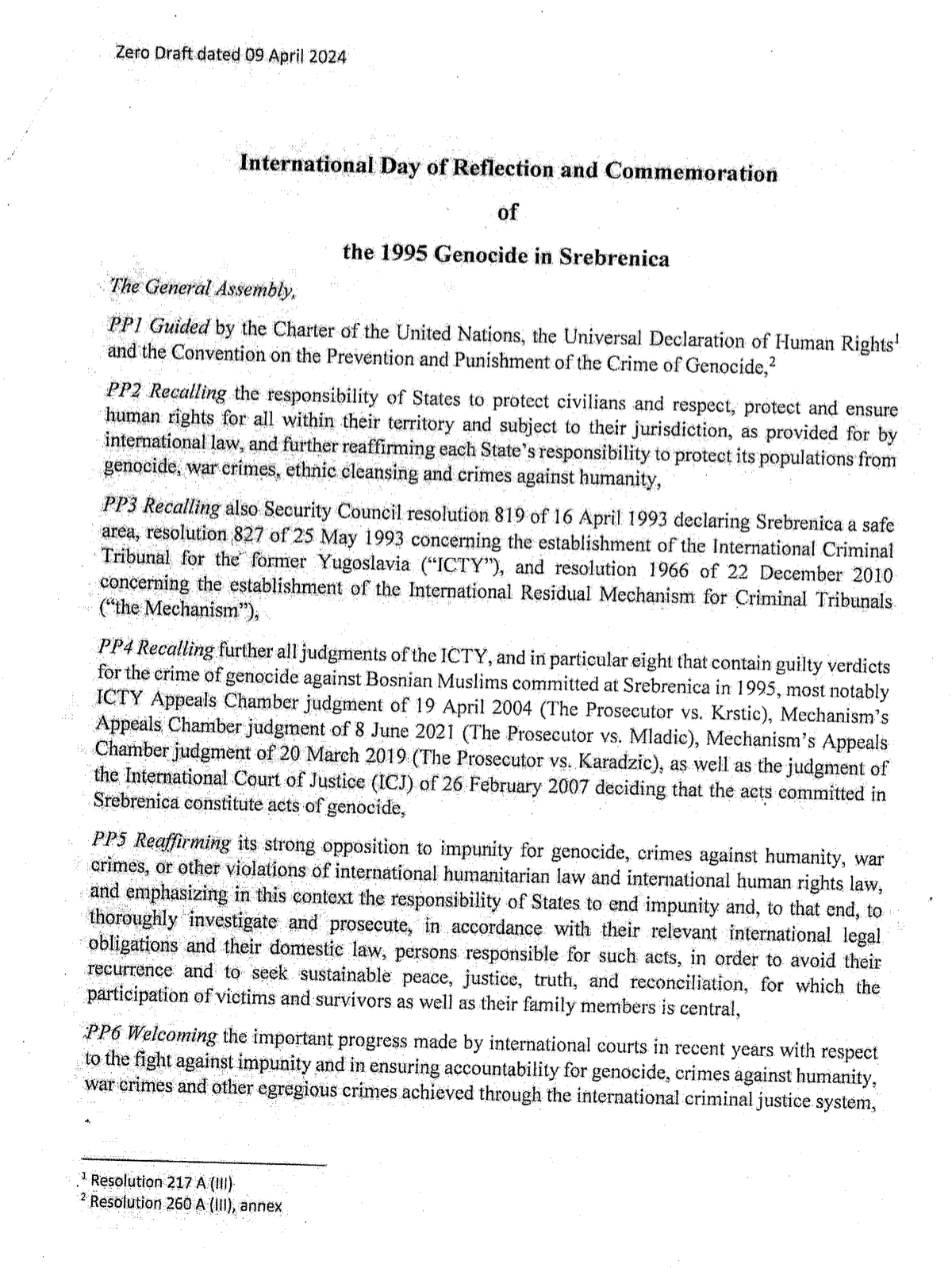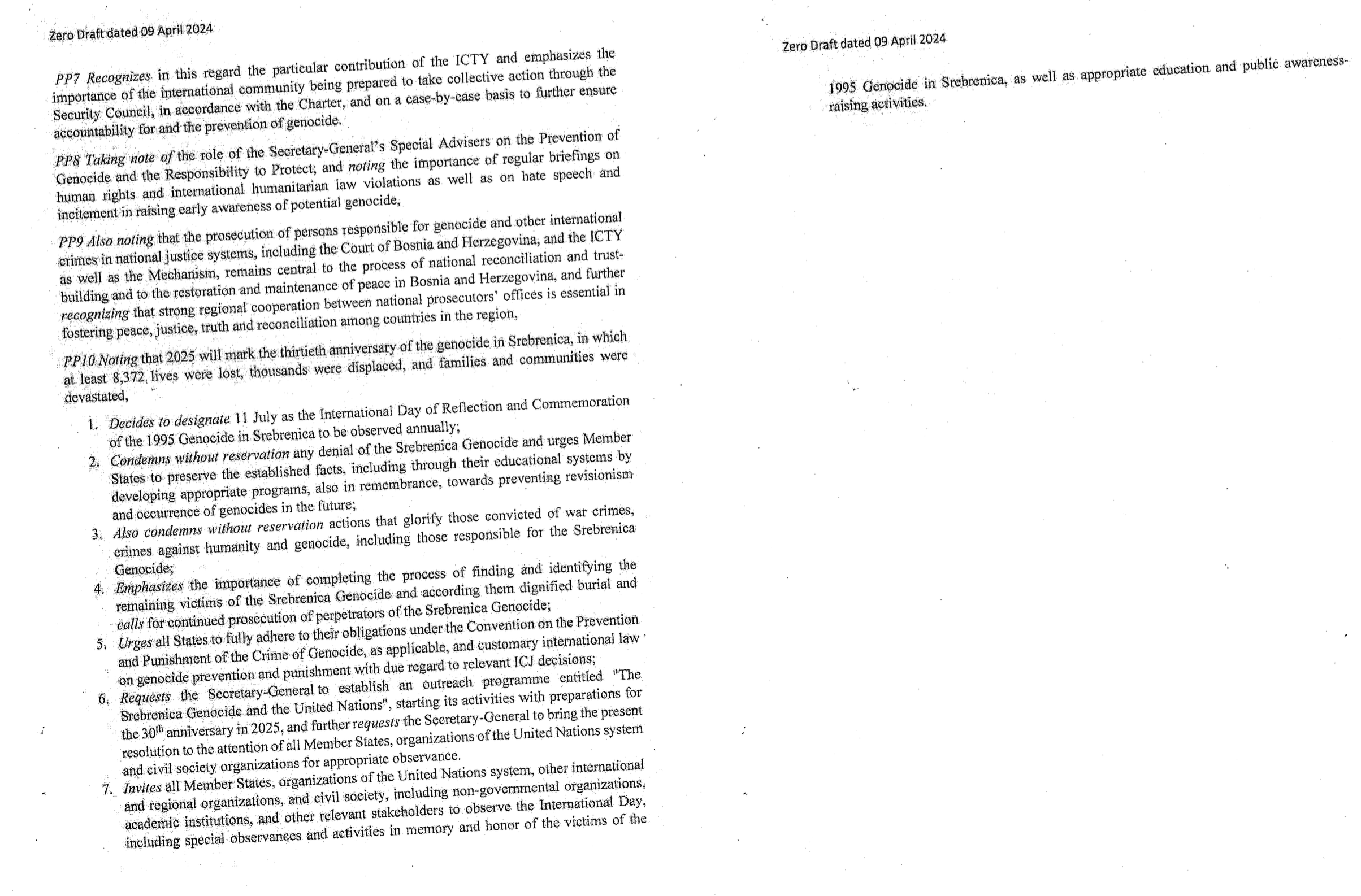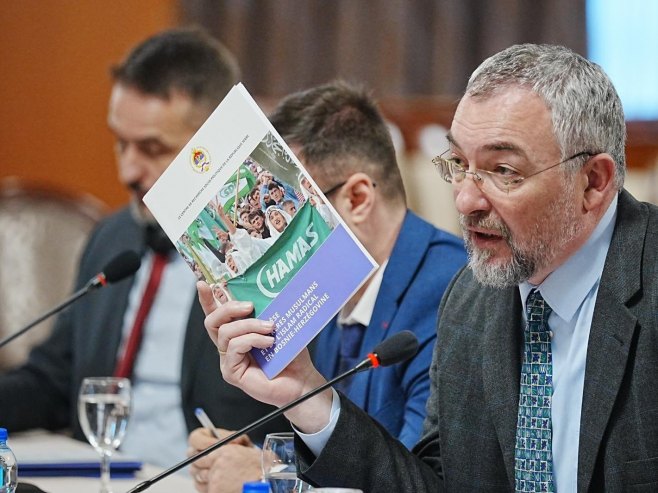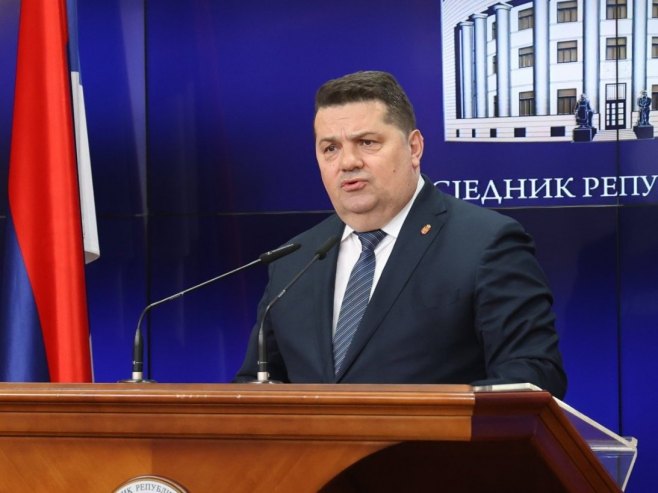Germany plans to introduce a resolution at the UN General Assembly in New York in early May, together with Rwanda, aiming to officially recognize the Srebrenica massacre in July 1995 as a “genocide” at the UN level. This is linked with the demand to declare July 11 as the “International Day of Reflection and Remembrance of the Genocide in Srebrenica 1995.” Against this background, the “NachDenkSeiten” wanted to know why the German government unequivocally categorizes the killing of about 8,000 men and boys of military age as genocide, but describes the genocide accusation regarding the killing of over 10,000 women and 14,000 children by the Israeli army in Gaza as “lacking any basis.” The response indicates serious structural information problems in the press staff of the Foreign Office. By Florian Warweg.
Background
On July 11, 1995, Bosnian Serb military units, led by General Ratko Mladić, took over the town of Srebrenica, which had been previously declared a UN safe zone. In the following days, several thousand Bosniak men were killed. The International Criminal Tribunal for the former Yugoslavia (ICTY) cites the number as 8,000.
29 years later, the UN Ambassador from Bosnia and Herzegovina, Zlatko Lagumdzija, sought to independently submit the previously mentioned resolution text. However, he overlooked the approval mechanisms stipulated in the constitution, which dictate that the formulation and execution of foreign policy are the responsibilities of the tripartite Presidency, consisting of representatives of the Bosniaks, Serbs, and Croats.
Subsequently, Germany and Rwanda took over this role and submitted the draft resolution for the international recognition of the massacre as genocide to the United Nations for voting in early May at the UN General Assembly in New York. A similar resolution, previously introduced by Great Britain, failed in the UN Security Council in 2015.
Sharp criticism from Israel on the resolution introduced by Germany
Opposition to the resolution comes not only from Serbia. Israeli representatives also warn of the consequences of such a resolution. For instance, the head of the Simon Wiesenthal Center in Jerusalem, Efraim Zuroff, stated in a guest article in the Jerusalem Post titled “Not every war crime is a case of genocide,” that the reasoning used in the resolution could “very easily” be applied to Israel’s actions in the Gaza Strip. Moreover, he questions the “genocidal” nature of the massacres by Bosnian Serb military forces:
Particularly concerning are the implications for Israel. The reasoning used in this resolution could very easily be misapplied to other conflicts, including Israel’s actions in Gaza. Such a precedent poses the risk of the term ‘genocide’ being politically instrumentalized, leading to its misuse on an international level against Israel and others. The term must continue to be strictly defined and used with the utmost caution, reserved for clear, unequivocal cases in accordance with international law.
Anyone familiar with this event and the original definition of ‘genocide’ knows very well that the crime committed by the Serb troops does not meet the definition of genocide, for the simple reason that the women and children in Srebrenica were all released unharmed.
In light of this, it is astonishing that the German government, despite the ongoing lawsuit against the Federal Republic for “complicity in genocide” in Gaza before the International Court of Justice, is so vehemently pushing for the recognition of the killing of 8,000 male Bosniaks at the UN level as “genocide,” while simultaneously dismissing any accusations of genocide regarding the killing of 24,000 women and children in Gaza by the Israeli army as “completely unfounded.”
The less-than-credible “response” of the Foreign Office spokesperson
The assertion by the spokesperson of the German Foreign Office, Christian Wagner, that he – and thus the entire press department of the Foreign Office – was unaware of this resolution, which had already been submitted to the UN system at the initiative of Germany at the time of the NachDenkSeiten inquiry, is not credible, especially considering the extensive domestic and foreign media coverage on the matter. For example, one can refer to the coverage by taz “UN Resolution on the Srebrenica Massacre” from April 19th, or the numerous press releases on the subject that can be found on the Presseportal platform, which is part of dpa.
It is also to be assumed that if the “NachDenkSeiten” had access to the resolution draft introduced by Germany at the time of the press conference, this would also apply to the press department of the ministry of the country acting as the main sponsor of this resolution. If the Foreign Office’s press department was indeed not informed about the resolution and the associated criticism from Israel at the time of the press conference, this would indicate serious deficiencies in the information transmission within the ministry led by Annalena Baerbock:


Excerpt from the government press conference transcript, April 24, 2024
Question Warweg
Mr. Wagner, Germany plans, together with Rwanda, to introduce a resolution at the UN General Assembly in May aimed at recognizing the Srebrenica massacre as genocide at the official UN level, linked with the request to declare July 11 as the International Day of Reflection and Remembrance of the Genocide in Srebrenica 1995.
In this context, I am interested to know: Can you briefly explain why the Federal Government sees the killing of about 8000 men and boys of military age as unquestionably genocide, when in regards to the killing of 10,000 women and 14,000 children in Gaza, the accusation of genocide is described by the government spokesperson as “completely unfounded”? Could you briefly explain that to me?
Wagner (AA)
Mr. Warweg, first to your question: I do not want to exclude the possibility that I can still learn things from you, but I would need to check on this initiative at the UN again. I don’t know anything about it right now, which doesn’t mean that it isn’t the case. But we will get back to you on that.
Genocide is very clearly defined under international law. I don’t want to fall into a legal proseminar here, but there is a clear difference. Above all, the intent element is very important, namely the element of deliberately exterminating an entire population group. So, I think I can leave it at that. I would not compare the two things.
Follow-up question Warweg
There are numerous critical voices from Israel regarding the introduction of this resolution. For example, the director of the Simon Wiesenthal Center in Jerusalem, Efraim Zuroff, stated that the reasoning used for the genocide in the resolution could very easily be applied to Israel’s actions in Gaza and therefore he warns against introducing this resolution.
I would be interested to know – you can do this in the supplementary information if you find out that there is such a resolution with Germany as the introducer – how the Federal Government evaluates these critical voices from Israel, also considering the fact that Germany itself is currently facing a lawsuit before the ICJ for complicity in genocide.
Wagner (AA)
Regarding the lawsuit by Nicaragua before the ICJ, we have already fully engaged here. We obviously reject it substantively and have also done so before the court. I refer you to our submission to the court, which you can find on our homepage.
If there is something to add regarding the other matter, I would get back to you.
Interjection Warweg
There will certainly be something to add!
Source: NachDenkSeiten









